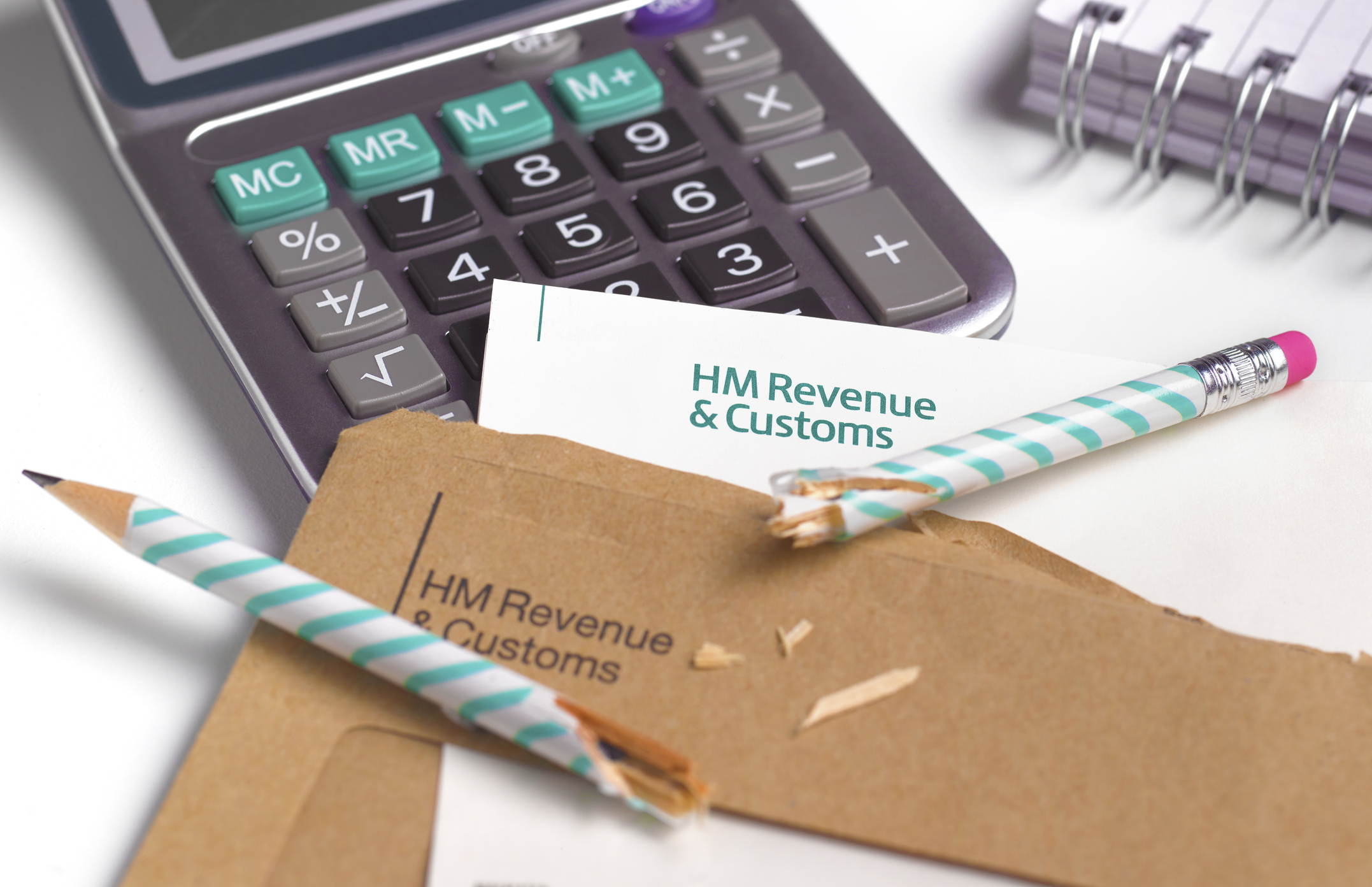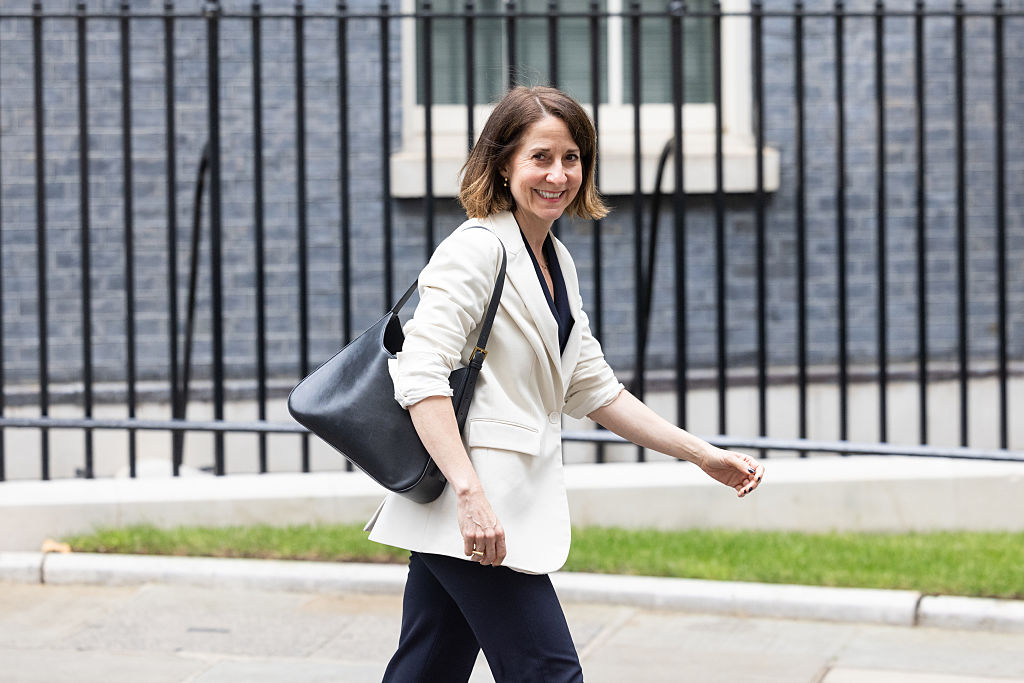Are you missing out on Pension Credit? How to claim the benefit worth £4,300 a year
Thousands of eligible households are still failing to apply for Pension Credit. We explain who qualifies for Pension Credit and how to apply

Sam Walker

Get the latest financial news, insights and expert analysis from our award-winning MoneyWeek team, to help you understand what really matters when it comes to your finances.
You are now subscribed
Your newsletter sign-up was successful
Want to add more newsletters?

Twice daily
MoneyWeek
Get the latest financial news, insights and expert analysis from our award-winning MoneyWeek team, to help you understand what really matters when it comes to your finances.

Four times a week
Look After My Bills
Sign up to our free money-saving newsletter, filled with the latest news and expert advice to help you find the best tips and deals for managing your bills. Start saving today!
Almost a million people are missing out on Pension Credit despite being eligible – with the average claim worth thousands of pounds a year.
Pension Credit is paid to those over state pension age on a low income and unlocks access to other benefits like help with NHS costs, a free TV licence for over 75s and the Warm Home Discount.
The government says the benefit is worth around £4,300 a year on average.
MoneyWeek
Subscribe to MoneyWeek today and get your first six magazine issues absolutely FREE

Sign up to Money Morning
Don't miss the latest investment and personal finances news, market analysis, plus money-saving tips with our free twice-daily newsletter
Don't miss the latest investment and personal finances news, market analysis, plus money-saving tips with our free twice-daily newsletter
However, up to 910,000 families who were eligible for the benefit hadn’t claimed it by the end of the 2023/24 financial year, according to new data from the Department for Work and Pensions (DWP), with the average claim among this group worth £2,600 a year.
This was up from 760,000 for the financial year ending 2023.
Stephen Lowe, director at retirement specialist Just Group, says: “The figures show the huge sums of Pension Credit that are going unclaimed by many of the nation's poorest pensioners, who are missing out on thousands of pounds a year of valuable extra income.
“The data on weekly claims that we have seen so far suggests a strong increase in take-up but it seems likely there will still be hundreds of thousands of eligible retirees missing out.”
Pension Credit applications rose sharply following chancellor Rachel Reeves’s announcement last summer that the Winter Fuel Payment, previously a universal benefit to all pensioners, would be means-tested.
The rush to claim created a backlog, with pensioners warned it could take several months for their applications to be processed.
However, the number of applications started to stabilise earlier this year. Claims fell by 16% between 31 March and 24 August this year compared with the same period in 2024 (1 April to 25 August 2024), marking a return to more stable levels.
The backlog was also cut from a peak of 85,600 outstanding claims in mid‑December 2024 to 12,100 by mid‑August 2025.
In total, the Department for Work and Pensions (DWP) cleared 344,700 Pension Credit claims in the year since the controversial Winter Fuel Payment announcement was made on 29 July. Of these, 181,100 Pension Credit claims were awarded, but a massive 163,500 claims were not awarded, marking an 88% rise year-on-year of applications that were turned down.
The government performed a U-turn on the Winter Fuel Payment in June, revealing the majority of pensioners would now receive it in future (now, the main criteria is to be of state pension age and have annual taxable income of £35,000 or less). So, it is no longer necessary to claim Pension Credit in order to get the Winter Fuel Payment.
Nonetheless, Pension Credit remains an important benefit, topping up a retiree's income, and opening the door to other financial perks. It can be claimed even if you have a pension or own your own home.
Pension Credit is one of the most underclaimed and misunderstood benefits. About a third of eligible people fail to claim.
We explain everything you need to know about Pension Credit, and the various ways to apply.
What is Pension Credit?
- Pension Credit is a government benefit worth around £4,300 a year
- You must have reached state pension age to qualify, among other eligibility rules
- Once you start claiming Pension Credit you can also qualify for other benefits
- You can check Pension Credit eligibility using the online Pension Credit calculator
Pension Credit is worth £4,300 a year on average, but could be worth more to certain households. It also unlocks access to other benefits, such as Cold Weather Payments, help with NHS costs, and the £150 Warm Home Discount.
Anyone who is unsure whether they or a loved one is entitled to Pension Credit can check using the government's online Pension Credit calculator.
It is separate from the state pension, and paid to people of state pension age on low incomes, even if they have savings, a personal or workplace pension, or own their own home.
The benefit is made up of two parts: guarantee credit and savings credit. The former tops up your pension income to a certain level. The latter is only available to those who reached state pension age before 6 April 2016 and had some money saved for retirement, for example in a personal or workplace pension.
Even if Pension Credit will only provide a small amount of money to you, it’s worth claiming as it means you will qualify for other benefits:
- Support for mortgage interest (SMI) if you own the property you live in
- Housing benefit if you rent the property you live in
- Council tax reduction
- A free TV licence if you’re aged 75 or over
- Help with NHS dental treatment, glasses and transport costs for hospital appointments
- Cold weather payments
- £150 Warm Home Discount
- Christmas bonus (only for those who receive the guarantee element of Pension Credit)
- A discount on Royal Mail redirection service for those moving home
The Warm Home Discount was previously limited to those on the guaranteed element of Pension Credit, or those receiving the savings element who had high energy costs, but Labour has widened the scheme.
Individuals on Pension Credit, who are the named billpayer in their household, will get the £150 discount off their energy bills this winter.
Why have so many people failed to claim Pension Credit in the past?
- Many pensioners don't realise they’re eligible for Pension Credit or know how to claim
- One in 10 Pension Credit claims fail because they don’t give the right information
- A DWP Pension Credit backlog has also delayed claims
Pension Credit is one of the most underclaimed government benefits, with a complex eligibility criteria. Some pensioners assume that if they own their own home they won't qualify. This is incorrect, as they may be entitled to claim it. If they have savings or a pension, they may also qualify for Pension Credit.
However, while Pension Credit claims have risen since last July, there has also been a large increase in applications being rejected.
Tom Selby, director of public policy at the investment platform AJ Bell, says: “While it makes sense to submit a claim if you’re close to the eligibility threshold and aren’t quite sure whether you’re eligible, the large number of rejected claims suggests there is still widespread misunderstanding of the eligibility rules.”
Even those who do successfully claim it may not be receiving as much money as they should. Some pensioners who receive Pension Credit may be missing out on extra money, due to not updating their financial information with the DWP. For example, if their savings reduce they could be entitled to a higher amount of Pension Credit.
One in 10 Pension Credit claimants are missing out on their share of about £100 million due to failing to provide the DWP with accurate information, according to government figures.
Lowe at Just Group says: “About 10% of claimants did not get their full entitlement in 2024-25 compared to 8% the previous years. The amount being underclaimed was also higher at £100 million compared to £80 million previously.”
Lowe said the DWP put the underpayments down to claimants failing to provide accurate or up-to-date information, mainly in three areas – a reduction in financial assets, a non-dependant moving out, or a fall in income from private pensions.
Lisa Picardo, chief business officer UK at PensionBee, says that with about 700,000 eligible pensioner households still missing out on Pension Credit, which could be worth thousands of pounds a year, the government has a big challenge ahead.
“Low take-up rates, which have hovered between 61% and 66% for over a decade according to the government’s own data, underline how urgently we need clearer communication, simpler claims processes and a joined-up strategy to ensure every eligible household receives what they are entitled to. No one should face pensioner poverty because of an administrative barrier or lack of awareness,” she comments.
Governments have run multiple awareness campaigns to encourage more people to claim the benefit. The DWP says it is exploring further options to "drive up claims by reaching the most isolated and poorest pensioners who are eligible for support". This includes "writing to all pensioners who make a new claim for Housing Benefit and who appear to be entitled to Pension Credit".
In October, the DWP launched a trial to boost take up, sending letters to 2,000 pensioners most likely to be eligible for Pension Credit but not claiming it.
It also recently updated the online claim form so it takes just 16 minutes on average to apply for Pension Credit.
How much is Pension Credit worth?
- Basic Pension Credit tops up a single pensioner’s weekly income to £227.10
- For couples, Pension Credit is worth an extra £346.60 a week
- You may quality for additional Pension Credit if you have other responsibilities
The minimum guarantee for Pension Credit – the minimum amount that someone on Pension Credit will receive – rose by 4.1% in April 2025, thanks to the state pension triple lock. This is a mechanism which increases the state pension by the highest out of inflation, average earnings growth and 2.5%.
Pension Credit tops up a pensioner’s weekly income to £227.10 if you're single. For couples, it’s £346.60.
You may be entitled to extra amounts if you have other responsibilities and costs. For those with a severe disability, a further £82.90 a week is available. You must get one of the following benefits to qualify:
- Attendance Allowance
- The middle or highest rate from the care component of Disability Living Allowance
- The daily living component of Personal Independence Payment (PIP)
- Armed Forces Independence Payment
- Daily living component of Adult Disability Payment (ADP) at the standard or enhanced rate
If you care for another adult, you could receive an extra £46.40 a week, provided you get Carer’s Allowance (or you’ve claimed Carer’s Allowance but are not being paid because you receive another benefit that pays a higher amount). If you and your partner have both claimed or are currently receiving the Carer’s Allowance, you can both receive this extra amount.
For those responsible for a child or young person, you could get a further £67.42 a week (which increases to £78.10 a week for the first child if they were born before 6 April 2017). The child or young person must normally live with you and be aged 19 or younger. If the child or young person is disabled, you may get another payment.
The final top-up helps with housing costs. An extra payment may be made to cover ground rent if your home is leasehold, or to cover service charges. The above payments are all known as "guarantee credit", and form one element of Pension Credit.
The other part of Pension Credit is savings credit, which is worth up to £17.30 a week if you’re single, or up to £19.36 if you have a partner.
Who is eligible for Pension Credit?
- You must live in England, Scotland or Wales and have reached state pension age
- Pension Credit eligibility and the amount you receive depends on total household income
- You can claim Pension Credit four months before reaching state pension age (66)
You must live in England, Scotland or Wales and have reached state pension age (currently 66) to be eligible for Pension Credit. When applying for guarantee credit, your income is calculated; if you have a partner, your joint income will be calculated.
The DWP defines income as your state pension and other pensions (even if they’ve been deferred), earnings from a job or self-employment, and most benefits.
However, not all benefits are counted as income. Attendance Allowance, Child Benefit, Disability Living Allowance, Personal Independence Payment, Housing Benefit, council tax reduction and the Christmas bonus are excluded.
Your savings and investments are also taken into account, which includes shares and any property you own (apart from the home you live in). If you have £10,000 or less, this will not affect your eligibility for Pension Credit.
If you have more than £10,000, every £500 over £10,000 will count as £1 income a week. So, if you have £11,000 in savings and shares, this counts as £2 income a week. If your income is below £227.10 a week then guarantee credit will top you up to that amount. If you’re claiming as a couple and your weekly income is below £346.60, it will be topped up to that level.
The criteria to claim savings credit is different. You can only access it if you reached state pension age before 6 April 2016, and you have some savings and/or a private pension. There isn’t a savings limit; however, if you have over £10,000 in savings, this will affect how much you receive. You might still get some savings credit even if you do not get the guarantee credit part of Pension Credit.
The eligibility criteria are complicated, and is likely to be one of the reasons why many pensioners don’t bother claiming.
You can use the government’s Pension Credit calculator to work out if you can claim and how much you’ll get. You’ll need to have details of your earnings, benefits, pensions, savings and investments. If you get stuck, call the helpline on 0800 99 1234 (Monday to Friday, 8am to 6pm).
How to claim Pension Credit
- You can claim Pension Credit online, via the helpline (0800 99 1234) or by post
- To claim Pension Credit you’ll need your NI number and full details of household income
- You can backdate your claim for Pension Credit by up to three months
- If your Pension Credit claim fails, you can ask for a "mandatory reconsideration"
You can apply for Pension Credit in several ways. Options include applying online on the government website, phoning the helpline (0800 99 1234), or submitting an application by post. If you haven’t reached state pension age yet, you can still apply up to four months before this date.
You’ll need your National Insurance number when you apply, plus information about your income, savings and investments. If you have a partner, you’ll need the same details about them too.
Government figures show that the majority of people apply for Pension Credit online or over the phone.
Sarah Pennells, consumer finance specialist at Royal London, comments: "You can backdate your claim for Pension Credit by up to three months, and the sooner you claim, the sooner you could start receiving payments. Not only that, but, if you’re entitled to Pension Credit, you’ll be able to get extra help with costs such as rent and council tax, which could make a big difference."
If you apply for Pension Credit and your claim is turned down, you can ask the Pension Service to look at your claim again if you think the decision is wrong. Asking them to change their decision is called a "mandatory reconsideration". It’s free to do and you don’t need to use a solicitor.
Some of the reasons for a claim being refused include having too much income, not being a UK resident, failure to provide all requested information and not being the right age.
Get the latest financial news, insights and expert analysis from our award-winning MoneyWeek team, to help you understand what really matters when it comes to your finances.

Ruth is an award-winning financial journalist with more than 15 years' experience of working on national newspapers, websites and specialist magazines.
She is passionate about helping people feel more confident about their finances. She was previously editor of Times Money Mentor, and prior to that was deputy Money editor at The Sunday Times.
A multi-award winning journalist, Ruth started her career on a pensions magazine at the FT Group, and has also worked at Money Observer and Money Advice Service.
Outside of work, she is a mum to two young children, while also serving as a magistrate and an NHS volunteer.
- Sam WalkerWriter
-
 Should you buy an active ETF?
Should you buy an active ETF?ETFs are often mischaracterised as passive products, but they can be a convenient way to add active management to your portfolio
-
 Power up your pension before 5 April – easy ways to save before the tax year end
Power up your pension before 5 April – easy ways to save before the tax year endWith the end of the tax year looming, pension savers currently have a window to review and maximise what’s going into their retirement funds – we look at how
-
 Simple assessment explained as millions brace for unexpected tax bills
Simple assessment explained as millions brace for unexpected tax billsIncreasing numbers of people could get letters from HMRC saying they owe more tax due to frozen thresholds, under a system known as simple assessment. Here is what it means for you.
-
 Should state pension age rise to 70? Have your say in government review
Should state pension age rise to 70? Have your say in government reviewThe state pension age review will consider the “merits” of automatic increases tied to life expectancy. If you want to give your view, you’ll need to be quick, as the deadline is looming
-
 The 1% pension rule: can it help close the pensions gap?
The 1% pension rule: can it help close the pensions gap?Advice Contributing an extra 1% into a pension could fill the gaps from a career break
-
 Act now to bag NatWest-owned Ulster Bank's 5.2% easy access savings account
Act now to bag NatWest-owned Ulster Bank's 5.2% easy access savings accountUlster Bank is offering savers the chance to earn 5.2% on their cash savings, but you need to act fast as easy access rates are falling. We have all the details
-
 Moneybox raises market-leading cash ISA to 5%
Moneybox raises market-leading cash ISA to 5%Savings and investing app MoneyBox has boosted the rate on its cash ISA again, hiking it from 4.75% to 5% making it one of top rates. We have all the details.
-
 October NS&I Premium Bonds winners - check now to see what you won
October NS&I Premium Bonds winners - check now to see what you wonNS&I Premium Bonds holders can check now to see if they have won a prize this month. We explain how to check your premium bonds
-
 The best packaged bank accounts
The best packaged bank accountsAdvice Packaged bank accounts can offer great value with useful additional perks – but get it wrong and you could be out of pocket
-
 Bank of Baroda closes doors to UK retail banking
Bank of Baroda closes doors to UK retail bankingAfter almost 70 years of operating in the UK, one of India’s largest bank is shutting up shop in the UK retail banking market. We explain everything you need to know if you have savings or a current account with Bank of Baroda